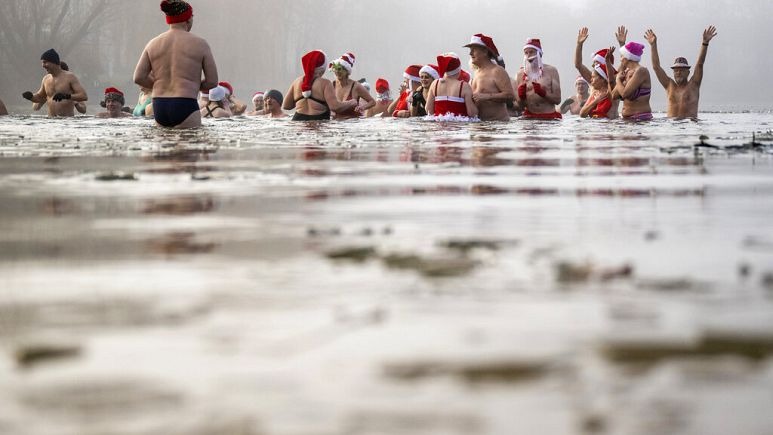Dozens of swimming enthusiasts dived into Lake Orankesee in Berlin in their Christmas outfits. With a water temperature of one degree Celsius, the members of the “Berlin Seals” had to clear the water of ice floes in some cases before they could get into the lake. Christmas bathing on the first holiday has become a tradition. The ice swimmers swear above all by the health-promoting effect of ice bathing.
“I am never sick “
Marina Hunger, a member of the Berlin Seals swimming club says: “The reality is that it is very, very healthy. I’m never sick. Zipfelmützen swim between ice floes – in Berlin’s Alt-Hohenschönhausen district they swim just before freezing point.
Holger Klempnow, a member of the Berliner Seehunde swimming club, is also enthusiastic:
“With ice, of course, it’s nicer. Without ice it’s called winter swimming, with ice it has a special charm and with a bit of snow it’s even better.”
Into the water several times for a few minutes and then into the warm: that’s the motto!
Mario Beyer, a member of the Berliner Robben swimming club, immediately makes a political wish: “The year 2023 would be much better if there were more peace and if the world were united like here, where we swim ice together with fun and joy and don’t get angry about everything else.”
The traditional Christmas swim on the first holiday was organised by the Berlin Seals Association.
Before the swim, there was a short Christmas sing-along.
It is said that regular ice bathing can strengthen the immune system and thus protect against infections. Our body reacts to extremely low temperatures by releasing valuable substances such as adrenaline, endorphins and anti-inflammatory corticoids. After physical exertion, it can regenerate more quickly. It is not without reason that ice baths are particularly popular with competitive athletes.
In addition, many people find the increased feeling of warmth, which is caused by improved blood circulation after the cold kick, pleasant. The cold-warm stimuli also train the blood vessels, which in turn benefits our cardiovascular system.
